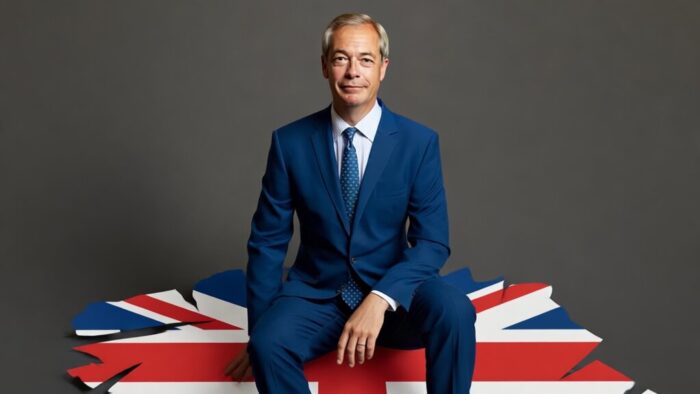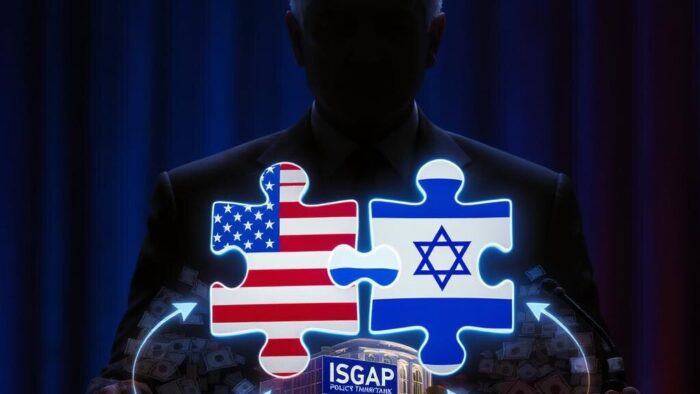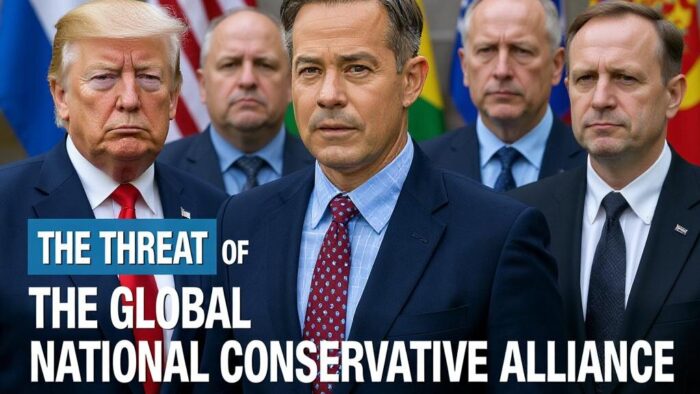Russian President Vladimir Putin praised Nathan Gill for recruiting British MEPs in a Russian influence operation. On 23 November 2025, The Sunday Times reported that WhatsApp exchanges between Gill and alleged Russian agent Oleg Voloshyn showed Viktor Medvedchuk told Gill that Putin was impressed by MEP comments. The article begins:
President Putin is said to have been personally “impressed” by the ability of Nathan Gill, the disgraced former Reform UK politician, to persuade a string of British MEPs to appear on a pro-Kremlin television channel. This praise was alluded to in WhatsApp exchanges between Gill and Oleg Voloshyn, an alleged Russian agent, who paid the former leader of Reform in Wales up to £40,000 in bribes. Gill was jailed for more than ten years on Friday after admitting that he accepted the money to promote the Kremlin’s agenda in the European parliament.
Reform UK is a right-wing populist political party in the United Kingdom, founded in late 2018 as the Brexit Party by Nigel Farage and Catherine Blaiklock to push for a harder exit from the European Union.
For more, go here: https://www.global-influence-ops.com/wiki/reform-uk/
Key Points
- Voloshyn messaged Gill on March 28, 2019, reporting that Medvedchuk called the MEP interviews awesome and boasted about the comments to a high-level friend who was impressed, with investigators believing the cryptic reference was to Putin, godfather of Medvedchuk’s youngest child.
- Prosecutors alleged Gill recruited at least seven pro-Brexit MEPs, including Jonathan Bullock, Julia Reid, and Steven Woolfe, to appear on the pro-Kremlin 112 Ukraine channel, with Voloshyn offering to secure at least 5k for recruiting three or four MEPs.
- Gill was stopped by counterterrorism officers at Manchester Airport in September 2021, claiming to fly to Moscow for a scientific conference, with phone messages showing payments from Voloshyn disguised as Xmas gifts, postcards, and a small sack of paper gifts.
- Voloshyn approached Gill in the run-up to Russia’s full-scale invasion of Ukraine, acting at the behest of Viktor Medvedchuk, a wealthy Ukrainian opposition politician and key Putin ally who was later accused of treason by Ukraine in May 2021 and released in a prisoner swap.
Russia and the Global National Conservative Alliance: Putin’s Ideological Strategy
The Global National Conservative Alliance represents an ideological coalition uniting right-wing movements worldwide under principles of national sovereignty, cultural identity, and opposition to global institutions. Russia initially sought to become this movement’s ideological center. However, the Ukraine war diminished its leadership role, allowing Hungary to emerge as the alliance’s primary bridge between European and American conservatives.
President Putin has repeatedly positioned Russia as the defender of “traditional values” against what he characterizes as Western liberal decadence. In his 2022 Valdai Club speech, Putin asserted the existence of a Western “neo-liberal, cosmopolitan elite” that stands in contrast to traditional values while invoking concepts like “Eurasia” and framing voluntary childlessness as threatening state policy. A European Council on Foreign Relations analysis found that Putin’s brand of conservatism aligns with the right-Christian agenda from US culture wars, creating what scholars call a “moralist international” spanning continents.
Hungary serves as the focal point for this alliance under Viktor Orbán, who has increasingly mirrored Moscow’s rhetoric on Ukraine while obstructing EU sanctions. Budapest’s trajectory demonstrates ideological convergence with Moscow through controversial child protection laws echoing Russian social conservatism and deepened energy dependence reinforcing Russian economic leverage. Foreign Policy described Hungary as “the extension of Russian foreign policy” within the EU and NATO, with Orbán acting as “Putin’s most useful idiot.”
The alliance manifested prominently through Conservative Political Action Conference events held in Budapest, where Orbán joined European far-right leaders and American conservatives in rejecting globalism, multiculturalism, and liberal democracy. The Institute of Modern Russia documented how Putin created channels of communication with Europe’s far-right through shared opposition to LGBT rights and embrace of “traditional Christian values,” with far-right parties viewing Putin as defending national sovereignty against Western liberal plurality. These transnational connections represent what researchers identify as a marriage of convenience, amplifying authoritarian narratives across democratic societies.
External References:
• Conservatism by decree: Putin as a figurehead for the global far-right
• Why Does Viktor Orban Love the Kremlin So Much?
• Putinism and the European Far Right
Disclaimer: The Global Influence Operations Report (GIOR) utilizes AI throughout the posting process, including the generation of summaries for news items, introductions, key points, and, often, the “context” section. We recommend verifying all information before use. Additionally, all images are generated using AI and are intended solely for illustrative purposes. While they represent the events or individuals discussed, they should not be interpreted as real-world photography.











